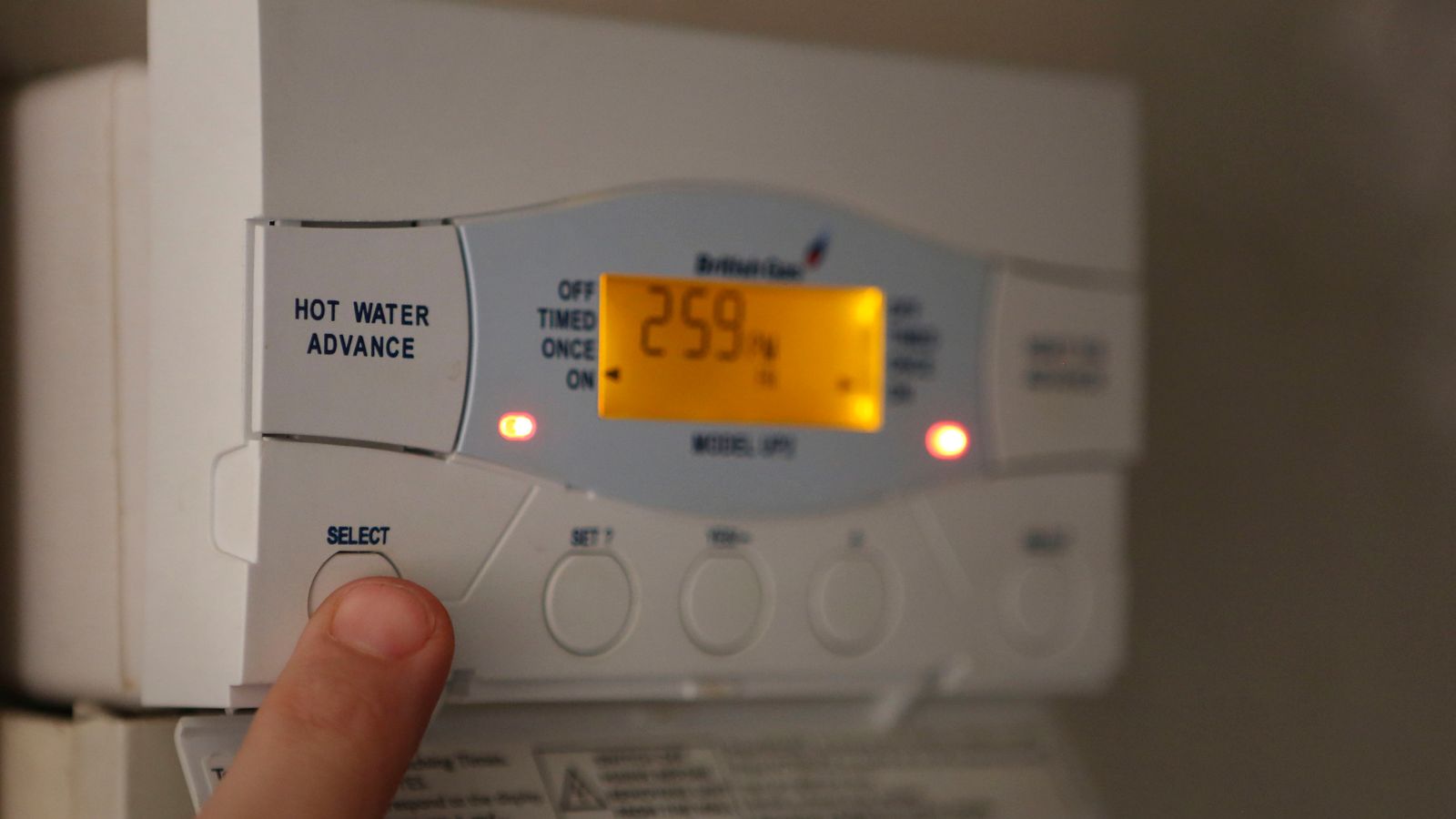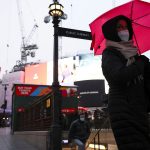The government is meeting with representatives from Britain’s energy firms amid fears a spike in gas prices could lead to food and fuel shortages.
Sky News understands Business Secretary Kwasi Kwarteng will spend today talking to senior executives from Ofgem, Centrica, National Grid, Energy UK, Octopus, Ovo, SSE, EDF, Scottish Power, Shell Energy, E.ON, Bulb and SGN.
Mr Kwarteng tweeted that the UK government does “not expect supply emergencies this winter”.
Energy security is an absolute priority. We are working closely with @ofgem and gas operators to monitor supply and demand
This explainer sets out the background, and the action we are taking to protect energy supply, industry, and consumers 👇🏾https://t.co/tmgQtzy0Xe
It follows reports that some companies that use gas in the production of products have shut down due to the high price of the fuel.
A resulting shortage of carbon dioxide is said to be stoking worries there could be gaps in the supply of meat, as the industry uses CO2 in the slaughter of animals.
But there are also concerns some people will be unable to afford the high cost of heating their homes over winter.
A spokesperson for the Business, Energy and Industrial Strategy department told Sky News: “The UK benefits from having access to highly diverse sources of gas supply to ensure households, businesses and heavy industry get the energy they need at a fair price.
Russia completes controversial Nord Stream 2 gas pipeline to Germany
UK had to turn on coal power plant to help National Grid cope with low winds
Revealed: ExxonMobil, Shell and BP among oil companies paying negative tax in UK on some North Sea operations
“We are monitoring this situation closely and are in regular contact with the food and farming organisations and industry, to help them manage the current situation.”
In an unusual move and in a reference to consumers, government officials have written an “explainer” to set out why “the Great Britain (GB) gas system has… sufficient delivery capacity to more than meet demand”.
The rise in gas prices has been blamed on high global demand, maintenance issues, and lower solar and wind energy output.
A former Ofgem chief told the BBC Radio 4 Today programme that Britain is likely to face high energy prices for the rest of the year.
Dermot Nolan said the increases were the result of depleted stocks following a cold winter last winter, reduced supply from Russia, and increased demand for liquefied natural gas from the Far East.
The government has been urged by meat producers to protect the food supply chain after the gas price hike resulted in the industry suffering carbon dioxide shortages.
Fertiliser plants in Teesside and Cheshire, which produce CO2 as a by-product, have halted production as a result of the sudden rise in wholesale gas prices.
Sky’s Ed Conway says that in the coming months, we can expect many more industrial plants to temporarily cease production.
Nick Allen, chief executive of the British Meat Processors Association, said CO2 is essential to both the humane slaughter of livestock and extending the shelf-life of products.






















